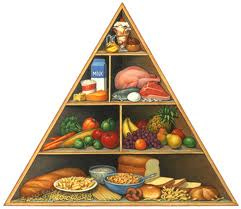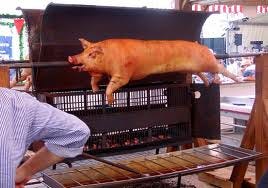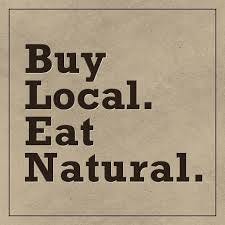Food and Holiness: Part I

Here at Kuyperian we are trying to take every thought captive to Christ. This includes economics, politics and naturally food. Food? Yes, food. Food is a source of great anxiety for our culture. What should we eat, how much should we eat, when should we eat, and where should we eat are all questions we ask. Every week it seems there is new study telling us about the evils of this food or that food. How should we think as Christians when it comes to food? Below is my brief attempt at putting up some guardrails on a road where many are currently driving over the cliff. A couple of notes before I begin:
First, I know there are Christians who flaunt their freedom and eat like pigs because they are “free in Christ.” I know it is possible for the fat person to look down on the thin. However, in the community I live in, our culture, and the Christian world at large that is not the major issue. The bigger issue is holiness by how we eat, dieting, or exercise. That is what I address primarily in these posts. That does not mean I think being a glutton is fine. It just means that the temptation in our culture leans the other way.
Second, I am not saying what we eat is irrelevant. But I am saying it does not matter as much as our culture tells us it does.
Third, each person has to make choices about how they eat and what they eat. I understand this. However, too often our choices become a source of holiness for us and a way of dividing between Christians. I am not saying we should not think about what we eat. I am saying this has very little bearing on our own righteousness and holiness and should not be a source of division in the Body of Christ.
Fourth, there is a lot more that could be said. I do not address feasting, hospitality, drinking good beer (or bad beer) or even how important the simple act of eating together can be. Perhaps in the future I will address some of these.
With those qualifications out of the way, here are my points. I will post more tomorrow.

First, the Old Testament laws about food have been done away with. It is hard to understand what else Acts 10 can mean, especially 10:28. Any Christian who tells you, “Don’t eat pork or shellfish because the Bible forbids it” has failed to understand the New Covenant and is leading you back to the shadows of the Old Covenant. I have heard this from parishioners, from pastors, in conferences, etc. This idea dies a hard death.
Second, the Old Testament food laws were not about health. This idea gets a lot of mileage in our health obsessed culture despite it not being true. It makes men sound holy for being healthy. However, God never uses health language when giving the laws. He tells them to do this because they are to be holy, separate from the nations. (Leviticus 22:26) The OT dietary laws are not a manual on healthy eating. They were a reminder to the Old Testament saints that they are to be separate from the nations. In the New Covenant those OT dietary laws are broken down as God is making one new man out of two. (Ephesians 2:14-18)
Third, two of the major food sins in Scripture are gluttony and drunkenness. We understand drunkenness. But we think gluttony equals being fat or eating too much. However, having an extra piece of pie does not qualify as gluttony, just as having two beers does not qualify as drunkenness. Having some extra pounds on you does not make you a glutton. Gluttony, like drunkenness, is not hard to spot when we know what we are looking for. Primary verses on gluttony are Deuteronomy 21:20 and Proverbs 23:19-21. The picture here is not of someone who overeats and is overweight, but of someone who leads a riotous, drunken life and squanders their money and time. (c.f. Matthew 11:19 and Luke 7:34) Gluttony is linked with a particular way of living, especially of wasting resources, sloth, poverty, and often theft. (Mark Horne does a great job explaining gluttony in this article.) My point is simple. Gluttony is a sin, but gluttony is not what most Christians think it is.
Fourth, natural food is not necessarily better than processed food. I understand that a lot of processed food today has been stripped of its nutrient value. However, it is important to not overreact. Nature is fallen just like man. The wheat has felt the effects of sin just like we have. God put us here to take dominion. Just because greedy men tear down what God has created does not mean we should just take nature as it is. We were made by God to take up the things in the world and transform them for our good and for his glory. This means we should be trying to make the wheat better, the cows fatter, and the apples bigger.

Fifth, where your food comes from does not matter that much. As Americans we have been taught that it is our duty to make sure our food does not come from a tainted source such as a corporate chicken farm or an overseas processing plant. But in I Corinthians 8:8 Paul says it is not a sin to eat meat offered to idols. If it is not a sin to eat meat that has been put on an altar, chanted over, and offered up to the gods, then it is not a sin to eat non-organic chickens, produce harvested by underpaid workers, and beef filled with hormones from the packing plant in Iowa. This is an argument from the greater to the lesser. Sometimes this argument is focused around buying locally. We should buy from a local farmer instead of from a corporate farm in California. Other times people cry out that justice demands that we make sure our food comes from a place where the workers are treated rightly. Whatever the argument, Paul’s point in I Corinthians 8:8 effectively blunts it. You can decide not to buy food from a certain place, but don’t make it a sin to when someone else does.
To Be Continued…
<>продвижение страницы в вкпроверить на вирус
The post Food and Holiness: Part I appeared first on Kuyperian Commentary.

